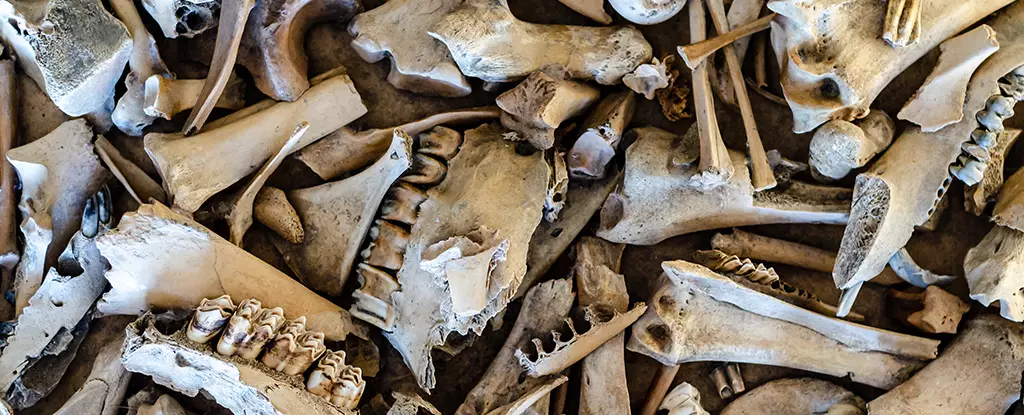For centuries, the narrative surrounding Neanderthals has been tainted by stereotypes of primitive violence and simplistic survival instincts. However, recent archaeological discoveries challenge this outdated view, revealing a species capable of complex resource management and strategic planning. One extraordinary find in Germany points to a “fat factory,” where Neanderthals exhibited a level of sophistication that many modern humans might overlook. Instead of dismissing them as brutish or merely reactive beings, we should recognize their ingenuity and adaptability — qualities that position them as more than just our extinct cousins, but as ancient engineers of their environment.
This new evidence underscores the importance of abandoning simplistic narratives. The Neumark-Nord site offers a glimpse into how Neanderthals understood their ecosystem: they selectively processed bones for maximum nutritional gain, carefully managing their supplies in ways that resemble strategic resource planning. The deliberate breaking, butchering, and processing of large mammal bones demonstrate an understanding of utility and efficiency. These behaviors suggest that Neanderthals employed foresight, patience, and a nuanced understanding of their surroundings—traits that align more with intelligent societal behavior than with brute survival.
Challenging the Assumption of Inferiority
The widespread underestimation of Neanderthal capabilities has influenced perceptions of human evolution for too long. Popular media often paints them as violent, dim-witted, and disconnected from meaningful social structures. Yet, the archaeological record complicates this picture significantly. The finds of tool use, intentional fire-starting, and organized resource harvesting at Neumark-Nord imply a level of planning that should not be overlooked. Their ability to cache carcasses for later use hints at foresight, while evidence of fire and tool assembly reveals a culture that was capable of innovation and technical skill.
It’s tempting to read these behaviors as rudimentary, but they instead reflect a strategic and adaptive mindset. The Neanderthals’ prowess in resource management — especially regarding nutrient-rich fats and marrow — rivals that of many early human groups thought to be more “advanced.” Recognizing these traits elevates our understanding of human evolution, forcefully placing Neanderthals within the realm of cognitive complexity rather than dismissing them as mere predecessors.
The Societal Implications of Their Technological Sophistication
The implications extend beyond raw intelligence; they touch upon the very nature of social organization, innovation, and environmental interaction among Neanderthals. The site’s artifacts point toward an organized, perhaps communal effort in resource extraction—a trait associated with social cohesion. While we can’t read their minds, the archaeological clues suggest they managed their environment with a purpose: hunting strategically, processing resources efficiently, and perhaps even passing down specialized knowledge.
This challenges the simplistic notion that Neanderthals were isolated and primitive. Instead, it paints a picture of a species capable of complex behaviors suggesting social learning, cooperation, and perhaps even rudimentary forms of culture. Their capacity to adapt and manipulate their environment with such mastery hints at a society that, despite its eventual extinction, possessed qualities often attributed only to modern humans.
Reckoning with Society’s Biases and Our Own Preconceptions
The focus on Neanderthal extinction often overshadows what their survival strategies tell us about human resilience and adaptability. While Homo sapiens thrived, it’s worth considering whether their success was partly due to their ability to learn from and perhaps even rival Neanderthal ingenuity. Recognizing the sophistication of Neanderthal behavior invites us to reassess our biases, deconstruct stereotypes, and appreciate the diversity of cognitive strategies employed by ancient humans.
Moreover, these discoveries strike at the core of our shared history, emphasizing that evolution is not a linear march toward “superiority” but a complex interplay of adaptations, innovations, and environmental interactions. The notion that we are inherently more advanced than Neanderthals becomes increasingly difficult to sustain as we uncover more about their strategies, planning abilities, and environmental awareness.
An Invitation to Broaden Our Understanding of Humanity
The ongoing revelations about Neanderthal life compel us to redefine what it means to be human. They challenge us to consider that intelligence, sociality, and technological advancement are not exclusive to Homo sapiens. Instead, they are qualities that have manifested in various forms throughout evolutionary history, each contributing uniquely to survival and adaptation.
By critically examining our assumptions, we can foster a more nuanced appreciation of humanity’s shared past—one that recognizes countless species, including the Neanderthals, as vital contributors to the tapestry of life. Their story isn’t just a tale of extinction but a chapter rich with lessons about resilience, innovation, and the complex nature of intelligence that transcends the simplistic binaries of primitive versus advanced.


Leave a Reply